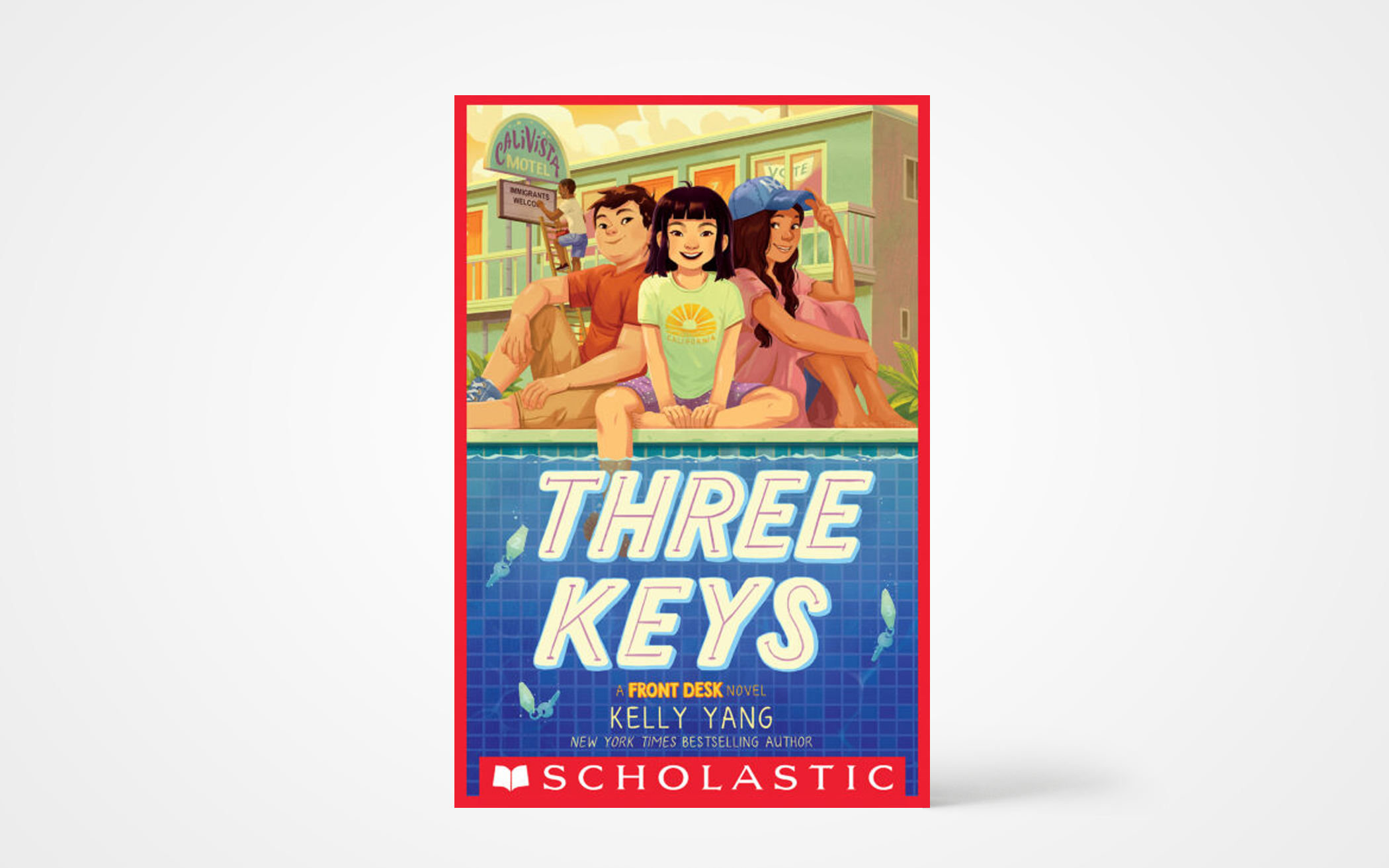In this sequel to the middle-grade novel Front Desk, 11-year-old Mia Tang’s courage, grit, and willingness to stand up against injustice fuel the narrative. Mia is the daughter of Chinese immigrants. After much sweat and opposition, her parents are able to buy the Calivista Motel with the help of immigrant investors and others.
For a while, Mia’s family’s fortunes improve as they create an extended family with other newcomers and people from various ethnic backgrounds—a true home. But then “a dark cloud settled over the state of California.” Mia hears adults talking about Proposition 187, a bill introduced by a state governor that has led to an increase in hate crimes. If the bill passes, Mia realizes, “Prop 187 would kick undocumented children out of California schools, making it illegal for them to get an education or use public services like hospitals.” Mia wonders what will happen to her best friend Lupe—the only friend she has ever had. Lupe’s parents fled Mexico when she was an infant and lived in California without “papers.”
As Mia and Lupe face intensifying struggles together, forging a deeper bond of friendship, they come up against forces far beyond their control. But they use their skills to do what they can to battle injustice and receive kindness from unexpected quarters—a teacher, government officials, a sympathetic lawyer, and even strangers.
Three Keys is a novel for our times. Based on historical facts—in 1994, Proposition 187 was voted in and anti-immigrant sentiments ran high—it mirrors the current political reality in the United States. Author Kelly Yang, who immigrated from China to California with her parents as a young child and helped to run the family motel, was 10 years old when Proposition 187 passed. In an author’s note she writes, “It was a permanent and irreversible slap across the face to me and every immigrant I knew.” Yang adds that she lived and breathed the story of Three Keys for years before writing it, wanting to represent in her book something she had never read about in other books—“worrying about one’s immigration status, being preoccupied by doubts and fears I couldn’t say out loud to my classmates but sat very much in the pit of my stomach, wondering whether I was ‘American enough,’ whether I was ‘too American,’ ‘not Chinese enough, ‘too Chinese.’”
Though Three Keys, which has several instances of profanity, deals with some hard realities, it is undergirded by the foundations of family, friendship, mercy, justice, and love and is peppered with humor and cultural insights. (Scholastic Press)
About the Author
Sonya VanderVeen Feddema is a freelance writer and a member of Covenant CRC in St. Catharines, Ontario.

